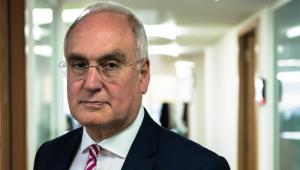In a speech examining the politics of education reform at the Festival of Education at Wellington College, the chief inspector of schools said political ideologues of both left and right are among the “guilty parties” when examining why attainment among the poorest pupils had not improved.
“Of course, both claim to be acting in the interests of the disadvantaged. Yet neither accepts the damage they invariably inflict,” he said ahead of his term ending this year.
“The left’s brand of snake oil was very pervasive in the 1970s and 1980s. They infiltrated scores of local authorities, peddling their anti-academic nonsense and undermining the authority and respect of school leaders.
“I have been criticised for saying that school leaders should be battle-axes and bruisers. But in the 70s and 80s, headteachers who wanted to stand against this destructive tide had to be educational warriors. It was only those who were prepared to stand up to the ideological bullies, masquerading as pastoral reformers, who survived that terrible period. Many didn’t.”
He urged people those who were fundamentally opposed to the academy programme to remember why it happened in the first place. “Academies were a response to the failure of so many local authorities. They let down the very children they were supposedly supporting,” he stated.
But accused right wing politics in the 1970s and 1980s of wilful neglect, and say that although it had ditched its “patrician disdain”, many still believe a market-based approach would solve problems in education including through an expansion of academies and free schools.
However, schools will "wither on the vine as they did 20 or 30 years ago if a more liberal and autonomous system is not subject to strong central and local intervention when early decline sets in", Wilshaw stated.
“The market will not stop the strong getting stronger and the weak getting weaker. Teachers and leaders will always gravitate to the places where it is more comfortable, more leafy and easier to work.”
The chief inspector highlighted differences in teacher training numbers as evidence of what could happen. “The prosperous South East region has over 458 trainee teachers per 100,000 pupils. Yet the East Midlands manages only 362 per 100,000 pupils with the East of England faring even worse with only 294 per 100,000. No wonder these last two regions are poorly performing. Schools in these areas find it more difficult to get good staff. Teacher supply follows well-resourced demand, not educational need.”
Wilshaw called the failure to tackle the attainment gap between children who receive free school meals (FSM) and their peers “perplexing and infuriating”. He said “the needle has barely moved” to close the gap in the last decade despite “the good intentions, the fine words and some imaginative initiatives”.
He added: “In 2005, the attainment gap between FSM and non-FSM pupils in secondary schools was 28 percentage points. It is still 28 percentage points now. Our failure to improve significantly the educational chances of the poor disfigures our school system. It scars our other achievements. It stands as a reproach to us all.”



















